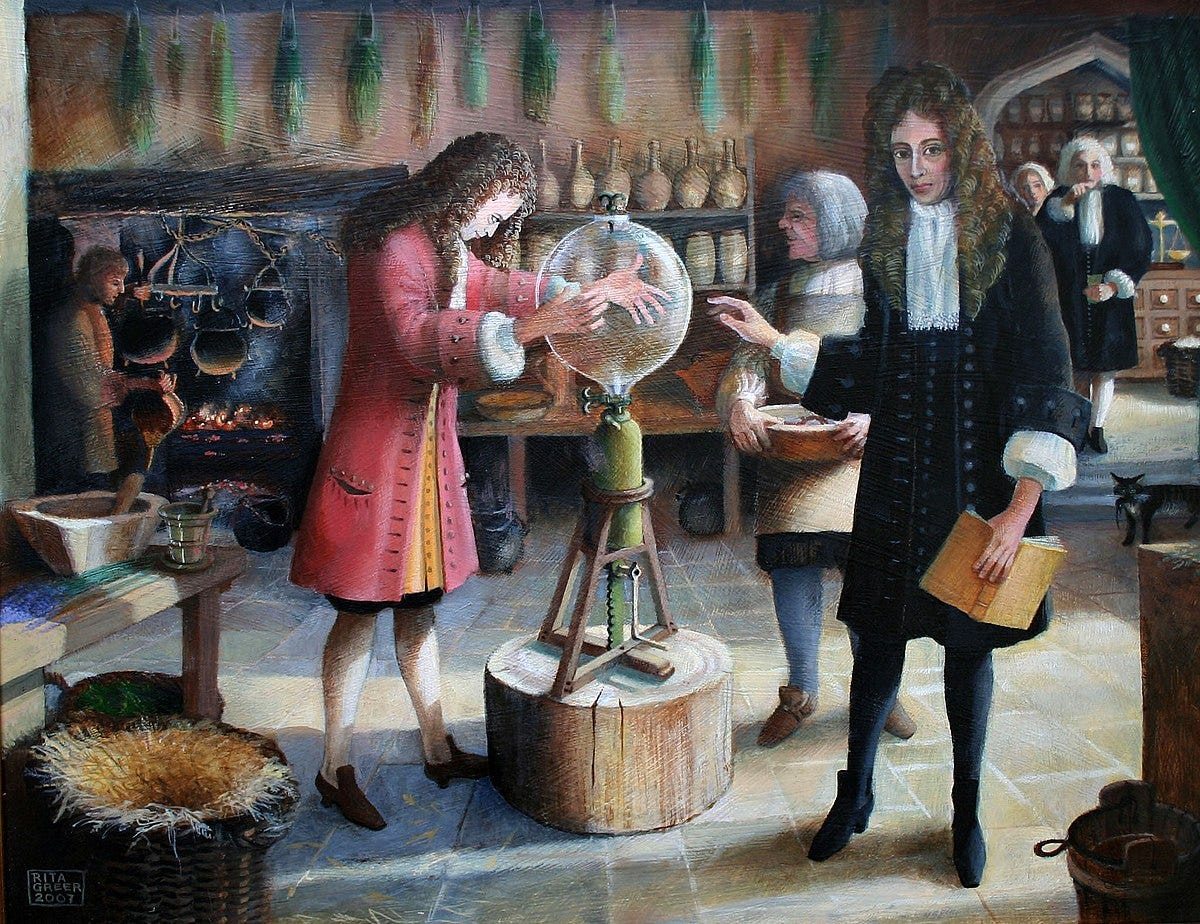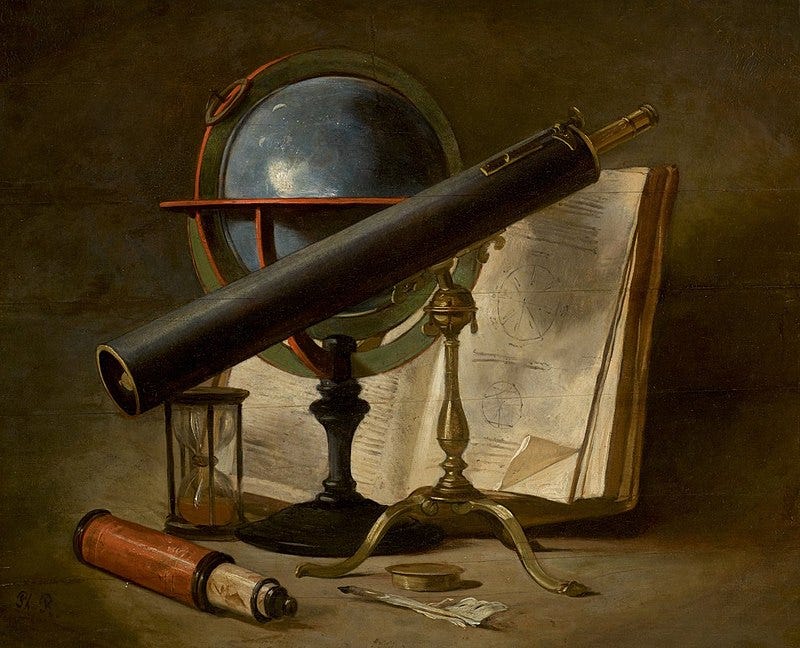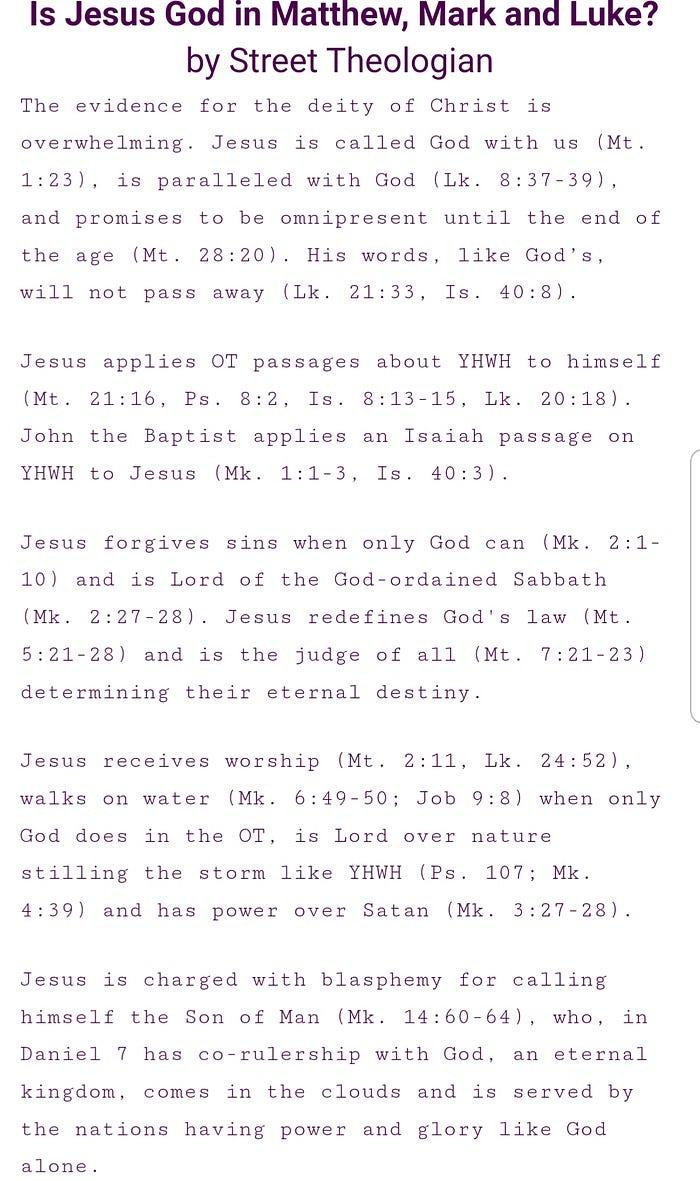Which Worldview or Religion Should You Choose? 2 Questions to Help You on Your Journey
Plus 2 BONUS questions if you read until the end
Find us on Medium.com
Or Twitter
https://twitter.com/StreetTheologn
The question of which worldview or religion you should choose is one of the most important questions of your life. Yet, with so many different views where can one start on their journey?
Worldview v religion
Many commonly consider religion a means by which one seeks to connect to or recognise a transcendent reality.
A worldview is broader and can include a person’s beliefs, assumptions or attitudes towards or about the world. As such, atheism can fall under this umbrella as a way of seeing the world that does not allow for a transcendent reality.
But I don’t believe in anything..
Some will likely retort that they don’t believe in anything and as such do not have a worldview.
Such a view is overly simplistic. Let’s take the practise of science for example.. one must assume the principle of uniformity (tomorrow will be similar to today), the applicability of logic and mathematics and that the universe is rationally intelligible to practice science.
Or do people who “don’t believe in anything” believe it is wrong to believe in a false belief? Why?
Or that certain acts are immoral?
I could go on but I hope this shows the point- everybody has a worldview, a framework and set of ideas they take to the world.
Doubters have beliefs?
Polymath, Michael Polanyi, contends in Personal Knowledge that doubt and belief are ultimately similar. How could that be? “The doubting of any explicit statement,” Polanyi explains, “denies (one) belief… In favour of other beliefs which are not doubted for the time being (p. 272).”
What about picking and choosing different aspects of worldviews?
We discuss this in our articles responding to the Academy of Ideas. We’d suggest you read to the end of this article and then if you feel a combination of worldviews best suits you that you read these two pieces:
It is also worth keeping in mind that there can be variations within a worldview so perhaps rather than picking and choosing across worldviews you need to look at variations within a worldview. For example, some secular humanists who consider themselves atheists will think objective moral values exist (perhaps rather inconsistently!), while others do not.
Does choosing a worldview mean you stop learning?
Absolutely not. It is important to keep learning and thinking as well as reflecting on your views and what they mean.
Now let’s get into it..
So many to choose from..
An atheistic worldview. Agnosticism. Open Spirituality.
Hinduism. Buddhism. Taoism. Sikhism. New Age Spirituality.
Islam. Christianity. Judaism. Christian Science. Jehovah’s Witnesses. Mormons.
Where does one start..
Today I suggest 2 quick questions to help you narrow down the worldviews available to you.
1. One-ism or Two-ism?
Is everything in existence of the fundamentally same nature or of different natures? While there is of course more nuance to things than at first glance, a one-ism versus two-ism split is helpful in grouping worldviews.
All is matter and movements?
Under a reductive materialist framework commonly held by atheists, all is matter and movements. You are fundamentally a bag of meat fizzing away to chemical reactions and there is nothing greater beyond that.
Do logic, maths and morals have a transcendent source?
Logic, morals and mathematical truths either need to be accepted as brute facts with no explanation or viewed as purely human inventions. They do not have a transcendent source. Nor do seemingly transcendent beauty, art, music or love.
These are all just inventions of matter more evolved than other compositions of matter, human beings.
All is illusory?
Under a Buddhist worldview, all is like an illusion and hence also of the same nature.
Exemplifying this the Buddha Dharma Education Association document on Passages from the Commentary on The Infinite Life Sutra notes, “There is nothing in this world we can truly grasp, since in reality everything is an illusion (p.39).”
In Samyutta Nikaya 12:15 Kaccanagotta asks the Buddha "In what way.. is there right view?"
The Buddha responds:
" This world, Kaccana, for the most part depends upon a duality—upon the notion of existence and the notion of nonexistence. But for one who sees the origin of the world as it really is with correct wisdom, there is no notion of nonexistence in regard to the world. And for one who sees the cessation of the world as it really is with correct wisdom, there is no notion of existence in regard to the world… But this one with right view does not become engaged and cling through that engagement and clinging, mental standpoint, adherence, underlying tendency; he does not take a stand about ‘my self… It is in this way, Kaccana, that there is right view. “‘All exists’: Kaccana, this is one extreme. ‘All does not exist’: this is the second extreme. Without veering towards either of these extremes, the Tathagata teaches the Dhamma by the middle.. But with the remainderless fading away and cessation of ignorance comes cessation of volitional formations; with the cessation of volitional formations, cessation of consciousness…. Such is the cessation of this whole mass of suffering.”
Neither non-existence nor existence
As such, nirvana, or the end goal under Buddhism is the cessation of all existence, literally meaning “blowing out” or being “extinguished”. It is neither non-existence as such, nor existence.
All is divine?
Under a Hindu worldview, all is fundamentally divine or Brahman of the same divine substance. Your Atman or individual soul needs to realise you are connected with everything and that all is of the same divine nature.
As Brihadaranyaka Upanishad 4.4.5 says, “That Atman (self) is indeed Brahman.”
Mundaka Upanishad 2.1.10 says, “The purusha alone is all this universe—Karma and Tapas. All this is Brahman.” Upanishad commentator Shankara notes on this passage, “Therefore everything is Brahman.”
Creator-creature distinction- Two-ism
Yet, in Christianity, Islam and Judaism, there is a fundamental difference in nature between God and all other beings or things. God is Other from everything else. There is God’s nature and the nature of everything else (two-ism).
When Two-ism goes one step further- the hypo-static union
Out of the religions that hold to Two-ism, Christianity is a slight variation. How?
Under Christianity, Two-ism goes one step further in the person of Jesus Christ. Through what has historically been referred to as the hypo-static union, Christ is one person, yet has two natures. Truly human, truly God.
The Transcendent God meets the fallenness and darkness of humanity to bridge the gap between man and God.
2. Who was Jesus- Lord, liar, lunatic, or legend?
Why Jesus? Aside from the fact Jesus is the most influential person in history as per the Time Magazine in 2013, Jesus is highly regarded across many different religions.
Your view on Jesus has a big impact on the worldview or religion you choose.
Jesus in Islam
In Islam, Jesus is a prophet of Allah. Jesus was born of a virgin (Surah 19:16-21) in Islam but was not crucified (Surah 4:157). Jesus did not claim to be God in Islam (Surah 5:116).
Jesus in Judaism- charged for blasphemy
In Judaism, Jesus was not the Messiah he claimed to be. Jewish religious leaders wanted Jesus dead for blaspheming and claiming to be divine in referring to himself as the Son of Man who has divine traits in the context of Daniel 7. Riding in the clouds when only God is said to, having an eternal kingdom like God and co-ruling (sitting at the right hand of) with God (Mark 14:60-64; Daniel 7:9-14).
Jesus in eastern religions
In eastern religions, Jesus is often considered an enlightened being or even an avatar.
Some in the New Age think of Jesus as an ascended master or a Reiki healer.
Jehovah’s Witnesses and Mormons
Jehovah’s Witnesses and Mormons think Jesus is not of the same nature as YHWH or the God of the Old Testament. Under these views Jesus is created, not uncreated.
Christians on Jesus
Christians think Jesus is YHWH or God; uncreated. Jesus is the Saviour that makes it possible for humans to connect with God by accepting his gift of salvation by grace through faith. The cross of Christ provides a remedy to the sin of humans, humans could not achieve themselves.
Atheists on Jesus
Among atheists, some think Jesus was just a good teacher and that his claims to be divine or the Messiah were based on legends or late fabrications. Some think Jesus didn’t even exist.
Lord, liar, lunatic trilemma
CS Lewis famously spelled out the Lord, liar and lunatic trilemma but the likes of sceptic Bart Ehrman in recent times have suggested we include the legend option as well as Ehrman claims the gospels were not based on eyewitness accounts.
Lewis famously quipped in Mere Christianity:
“I am trying here to prevent anyone saying the really foolish thing that people often say about Him: I’m ready to accept Jesus as a great moral teacher, but I don’t accept his claim to be God. That is the one thing we must not say. A man who was merely a man and said the sort of things Jesus said would not be a great moral teacher. He would either be a lunatic — on the level with the man who says he is a poached egg — or else he would be the Devil of Hell. You must make your choice. Either this man was, and is, the Son of God, or else a madman or something worse. You can shut him up for a fool, you can spit at him and kill him as a demon or you can fall at his feet and call him Lord and God, but let us not come with any patronizing nonsense about his being a great human teacher. He has not left that open to us. He did not intend to.”
Ehrman
In a 2013 article, leading non-Christian New Testament scholar Ehrman wrote:
Liar, Lunatic or Lord – It’s Not in the Synoptics.. The idea that Jesus called himself God is not historical. It is a Legend. And so the choices are Liar, Lunatic, Lord, or Legend. Not that Jesus himself was a legend. Far from it! But the idea that he called himself God is a legend.
Interestingly in 2014, Ehrman then claimed he thought all four Gospels present Jesus as divine:
“These Gospels do indeed think of Jesus as divine. Being made the very Son of God who can heal, cast out demons, raise the dead, pronounce divine forgiveness, receive worship together suggests that even for these Gospels Jesus was a divine being, not merely a human… so yes, now I agree that Jesus is portrayed as a divine being, a God-man, in all the Gospels. But in very different ways, depending on which Gospel you read.”
Nonetheless, Ehrman has also mentioned to Alex O’Connor in 2023, that he does not think Jesus is presented as God in Matthew, Mark and Luke.
We have addressed this elsewhere:
It would seem Jesus did claim to be God in Matthew, Mark and Luke. In fact, Jesus was charged with blasphemy for claiming to be the Son of Man (even the highly sceptical Jesus Seminar agree Jesus used this term to describe himself) in Mark 14:60-64 with the context of Daniel 7:9-14 in mind. At the right hand of (co-ruling) with the Power and coming with the clouds of heaven (Mark 14:60-64).
To summarise the background context in Daniel 7, the Son of Man comes with the clouds of heaven when only God does this (eg. Deut. 33:26), has a clear human appearance, is given dominion and served by the nations when this role is reserved for God (Is. 45:23; Dan. 4:34), a heavenly throne (Dan. 7:9–14), glory and honour attributable to God (Is. 48:11) and an everlasting kingdom when only God’s kingdom is an everlasting kingdom (Ps. 145:13; Dan. 4:34).
Why Jesus died
If these events took place, the fact Jesus died for his claims would also make it unlikely Jesus was a liar, for one would not willingly die for a lie.
It would then seem your options may be more reasonably limited to Lord or lunatic..
What are your thoughts? What resonates with you? What do you want to look into more? Where are you on your journey? Feel free to let us know in the comments!
Bonus questions
Two more bonus questions before you go:
What will you do with your hurt, pain and imperfections? A view on suffering and human fallenness is important in a worldview.
If you believe in God, do you climb your way to God or does God come down to you?
These are big questions but hopefully this is a starting point!
All the best with the journey.


































It is true. Everyone believes something.